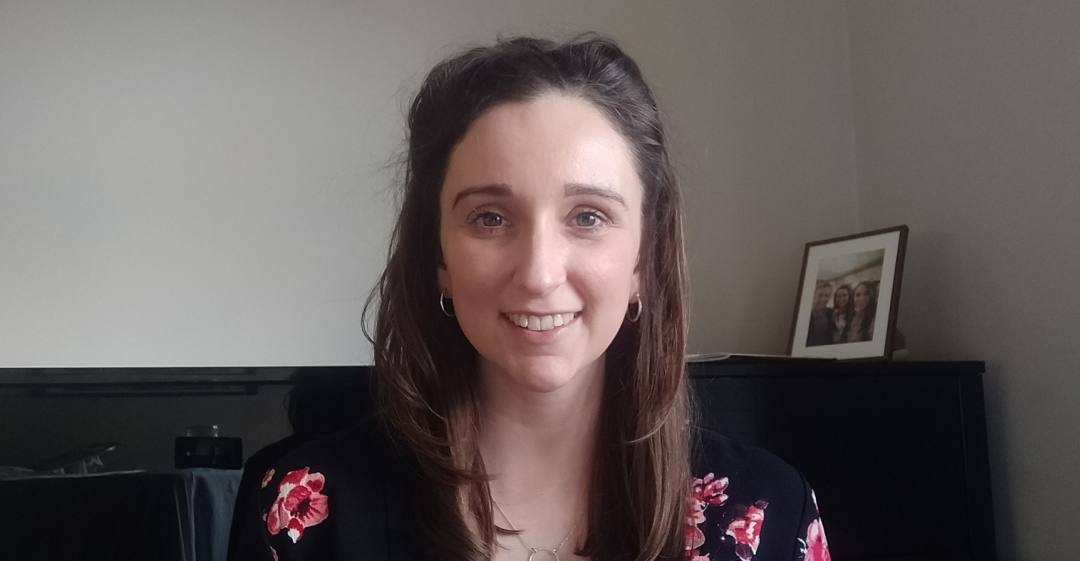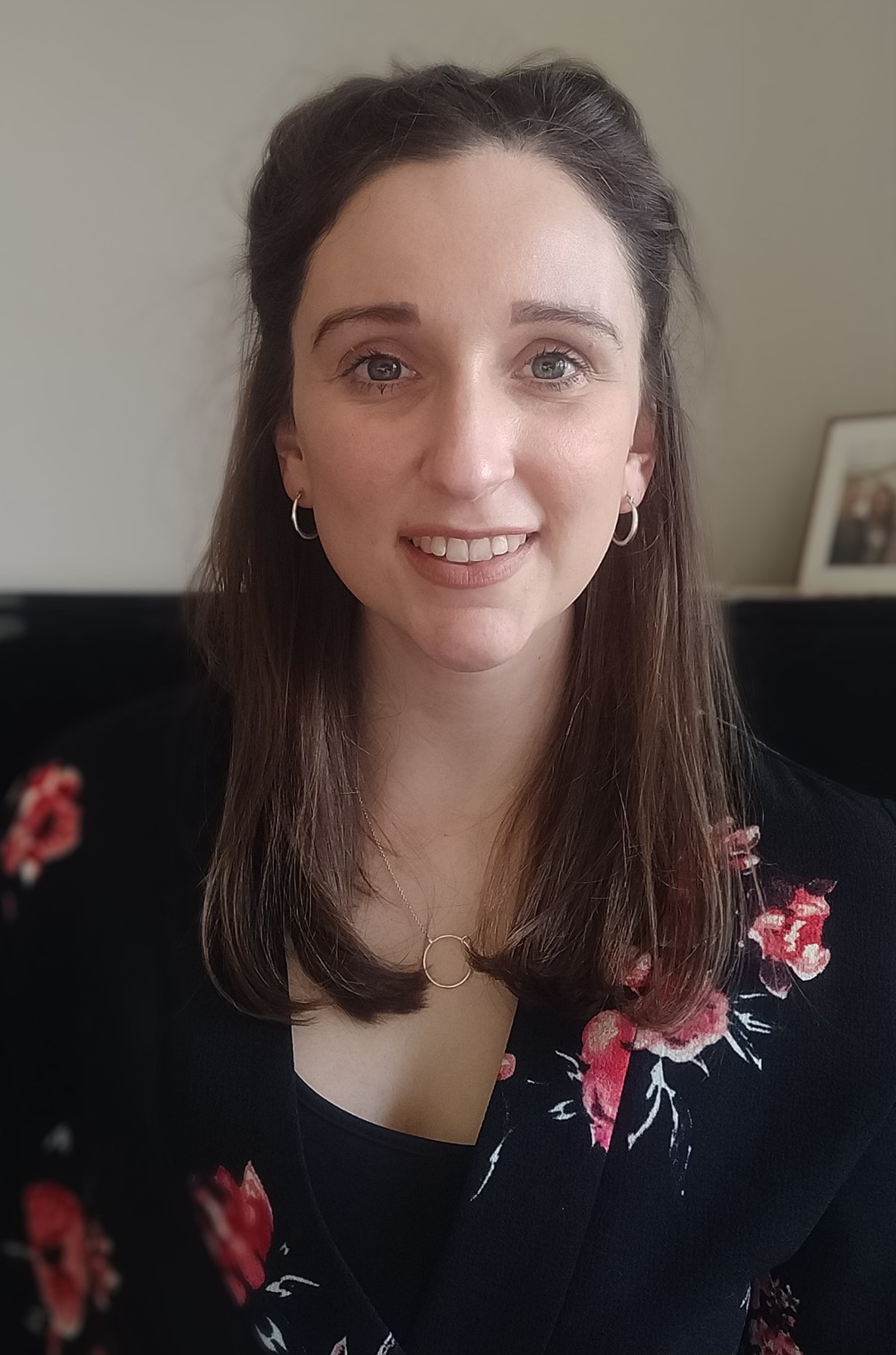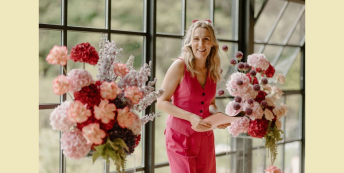“I felt anxious, overwhelmed and like I was always playing catch up.”

What work were you doing previously?
I was a qualified lawyer working in large commercial law firm.
What are you doing now?
I'm now working in a charity called Irish National Opera (INO).
INO creates exciting and thought-provoking opera for audiences across Ireland and strives to make opera more accessible and innovative.
In addition to producing operas, we support artists, creative and technical teams in pursuing their opera careers, and provide outreach and education opportunities to young people and communities across Ireland.
My role is Development Assistant, which involves constant engagement with our donors. We are partially funded by the Arts Council but also rely heavily on individual giving, so I assist in maintaining that programme and ensure that our supporters feel part of the INO journey.
How did you feel in your work before you decided to make the change?
It didn't feel like the right fit for me.
The fast-paced nature of the work was exciting at times, but I found that when it was constant, it was unsustainable. This led to me feeling anxious, overwhelmed and like I was always playing catch up.
Long hours were frequent and when working late I would find that my sleep, diet and exercise were all negatively affected, which obviously affected my mood, too.
But most importantly, I was really struggling to find motivation and fulfilment in my job.
Why did you change?
I was never passionate about the law; I sort of accidentally fell into it.
But in the back of my mind I knew that I never wanted to do it long-term. The legal profession is a very stable, secure profession with a clear path of career progression. That’s the dream to a lot of people but when that path is not something you want, it can be very claustrophobic.
I changed because, at the end of the day, I wanted a job that would give me some fulfilment (or at least allow me the time and space to find fulfilment in other areas of my life).
Music was always a big passion of mine and I'd set up a choir a few years ago, but it was really difficult to work on that in my spare time when I had to work long hours, or was so exhausted from work that I didn’t have the headspace to do it.
I wanted a job that wouldn’t take so much time from my life, so I could focus a bit more on my music.
When was the moment you decided to make the change?
I found that I needed external validation before I had the courage to make the change.
My brother and one of my closest friends saw me break down a number of times; they both said that this was not normal for me and that I had to leave. I think I knew this in my gut for so long, but I needed to hear it from someone else.
That moment empowered me to actually do something about my situation. I’m so grateful to my brother and my friend for that moment.
How did you choose your new career?
While I knew that law wasn’t the right fit for me, I had absolutely no idea what I wanted to do instead.
So I started talking to any of my friends who were doing interesting things and quizzed them on what their jobs looked like, day to day. This was really interesting as I quickly realised that certain things that I thought I'd love were nothing like I'd imagined.
I started crossing ideas off the list, and while this was scary, knowing what I didn’t want to do was valuable information.
One of these chats with a friend led me to the job description for my current job, and the rest is history.
Are you happy with the change?
I’m utterly thrilled with the change.
It’s given me a new lease of life. Working on something that I truly care about gives me a huge sense of fulfilment, and working in a small, young, innovative company is exciting.
I expected to have some doubts about it, but haven’t so far!
What do you miss and what don't you miss?
I miss the people.
I worked in two large law firms; the benefit of being in such large companies is that you meet so many people, some of whom have become friends for life.
I don't miss the work, the way I felt when I was doing it, or the lifestyle I had while doing it.
How did you go about making the shift?
I put in loads of work.
I started with counselling, just to get my head around the change. I then did a few workshops and individual coaching sessions with a career coach. These sessions gave me questions that I then took away, reflected on and researched.
I filled a whole notebook with responses to these questions – lists of companies, industries, roles and courses that I then researched in more detail.
How did you develop (or transfer) the skills you needed for your new role?
I’m lucky in that the skillset I acquired in my legal training was transferrable to a number of different roles.
My interest and passion in the arts was also very helpful.
Everything else I’m learning on the job with the help of my incredible team. INO are supportive of professional development so I’m taking some courses that will assist me in my role and look forward to learning lots more in due course.
What didn't go well? What wrong turns did you take?
The first few jobs I applied for / interviewed for didn’t go well at all.
On reflection, it was because I was bringing the wrong energy. I had this desperation for these roles to save me from the law, rather than focusing on whether I actually wanted them.
I realised that I would never get anywhere by dwelling on where I'd been. I needed to look positively to the future. It was only then that the right sort of roles came my way.
How did you handle your finances to make your shift possible?
This is an interesting one and, in hindsight, my answer shows how long I’ve been planning to leave the legal world.
I always thought I’d go into the non-profit world (but I assumed in a legal role) and wanted to ensure that I didn’t get trapped by my corporate salary and the lifestyle that it provided. I figured if I could comfortably live below my means then a drop in salary wouldn't be such a scary thing.
So, from the very beginning of my legal career, every increase in salary went straight into savings; I was effectively living off my initial salary for years. It gave me a safety net in case I needed to take some time out with no salary.
I’m glad I did that because living below my means got me into good financial habits; after that, the adjustment to a lower salary didn't feel so dramatic.
The important thing for me was that, while my salary decreased with this role, I gained happiness, fulfilment, less stress and a better lifestyle. That was worth it for me.
What was the most difficult thing about changing?
Three things:
Self-doubt – it took me a long time to trust that what my gut was saying was right. I was caught up in what other people thought; that they would think I was making a mistake. This turned out not to be the case in the end, but I found it difficult to not consider it.
Identity – I spent a total of nine years studying, doing exams and training, so being a lawyer became tied up in my identity. It feels weird to be shedding that identity, but lovely to be getting back to myself. I never truly felt like a lawyer anyway!
The sense of having wasted time / qualifications – I struggled with the notion that if I quit law, the nine years it had taken me to get qualified would be wasted. But then I realised that nothing I learn will ever be a waste. I don’t need to work in an area my whole life just because I studied it; in fact, I've find that my knowledge of it has strengthened me in other areas.
When I accepted that, it became clear that it would be crazy to continue working in the wrong industry just because it took a lot of effort to get there.
What help did you get?
I like to talk about my problems out loud, it helps me to process them.
So, unfortunately for my dear family, friends and housemates, I talked their ears off! I also did counselling and worked with an incredible career coach.
I reached out to people and asked them in detail about their jobs. Without their kindness and patience I wouldn’t have got through this at all.
I also once received a great piece of advice from a boss – figure out early if you live to work or work to live. This advice stayed with me as I realised that I’m a person who wants to work to live and that informed the type of jobs I was then looking at.
Another great piece of advice was from one of my coach’s workshops, where she said “What do you want your life to look like? Now, find a job that fits with that.” This blew my mind.
You spend your whole childhood surrounded by adults asking you what you want to do when you grow up, so I never thought to flip that on its head and prioritise what I want my life to look like!
What resources would you recommend to others?
Well if you’re reading this you’ve already found Careershifters which is such a great place to start!
My coach Angela Burke puts a lot of content on her Instagram (@angelaburke.ie) and conducts very interesting interviews.
There are also a few great podcasts that I found helpful:
- Quit Happens by Lynn Marie Morski – interviews with people who have quit their jobs and what they’re doing now.
- Your Best Self by Faye Rowlands – interviews with people who love their jobs and their journeys to get to that point.
- For new ideas, check out There Are Other Ways by Fiona Barrows – conversations about living life a little differently.
What have you learnt in the process?
I could write a whole book on the things I learned through this process!
In summary I’ve learned…
- Nothing you learn is ever wasted;
- Just because you’re capable of doing something, doesn’t mean you should do it, especially if it makes you unhappy;
- At the end of the day, nobody cares what you do, so you might as well make a decision that serves you;
- No salary is ever worth it if it negatively impacts your mental and physical health;
- Everyone has a different definition of success.
What would you advise others to do in the same situation?
Trust your gut.
Define what success means to you.
Explore all your options with an open mind.
Have an exit strategy (this includes financial planning).
Always remember that even when something is really, really hard, having an end in sight makes it more manageable.
And lastly, I think people are your best resource. Reach out to your whole network – who knows who might point you in an interesting direction?
What lessons could you take from Audrey's story to use in your own career change? Let us know in the comments below.



